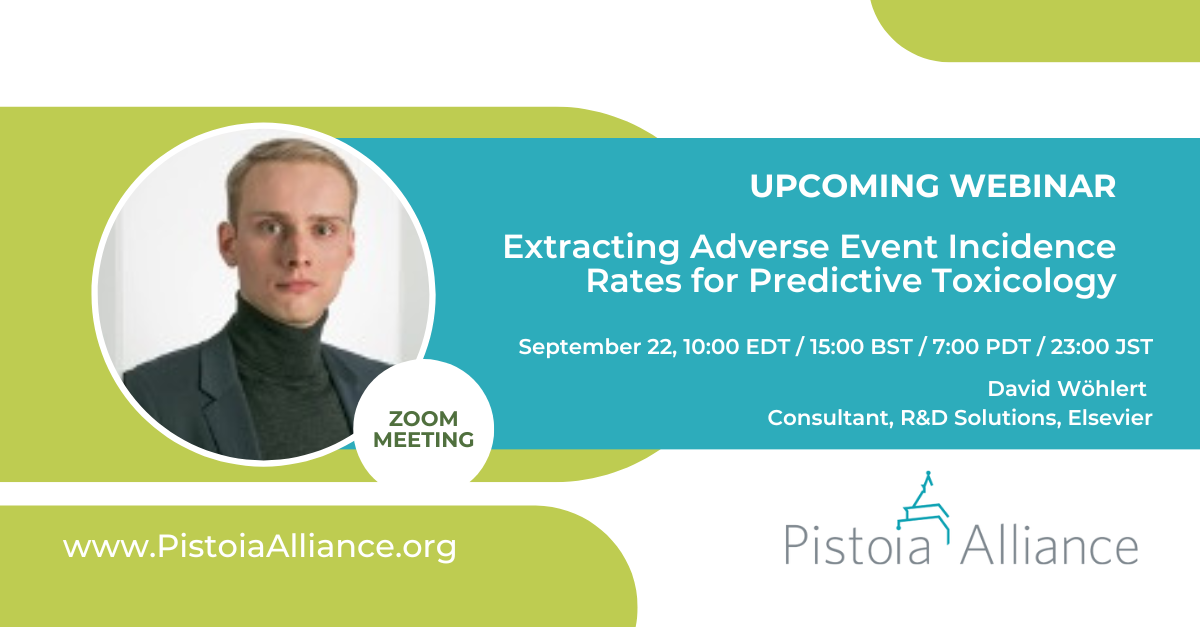
What:
Extracting Adverse Event Incidence Rates for Predictive Toxicology
When: September 22, 10:00 EDT / 15:00 BST / 7:00 PDT / 23:00 JST
Webinar Summary
Drugs can cause unwanted undesirable effects called adverse reactions, or side effects. In addition to lack of drug efficacy, safety issues caused by these reactions are a major reason for clinical trials to fail. Identifying adverse reactions in preclinical stages can help to reduce the risk associated with drug development and improve patient safety.
In-vitro and in-silico predictive toxicology models can be used to identify adverse reactions at an early development stage. However, they require reliable, quantitative data on adverse event incidence rates for calibration and training. While a great deal of clinical and regulatory information on adverse drug events is publicly available, the data itself is often unstructured, limiting its accessibility. The variety of ways in which the relevant information is reported provides a challenge for data extraction at scale.
Using a test set of 865 FDA-approved small molecule drugs, we demonstrate a workflow for extracting adverse reaction incidence rates from clinical trials, drug labels and literature. To ensure statistical robustness and comparability between drugs, we identify patient numbers and the monotherapy status of the underlying trials. Using a combination of public and proprietary natural language processing tools, we supplement the extracted incidence rates with dosage, route of administration and formulation data. To compare the results from clinical trials with data from post-market reports, we perform a disproportionality analysis using FAERS data. In this webinar, we will present our approach to solving the challenges in data collection and summarize the top results from both search strategies, using gastrointestinal toxicity as an example.
Speaker
 |
David Wöhlert,
Consultant, R&D Solutions, Elsevier
|
Brought to You By
Ready to Get Involved?
There has never been a more important time to collaborate to innovate as an industry! If you would like to find out more about the benefits of Pistoia Alliance membership and how you can get involved with all the different initiatives we run, please send an email to Membership@PistoiaAlliance.org.

